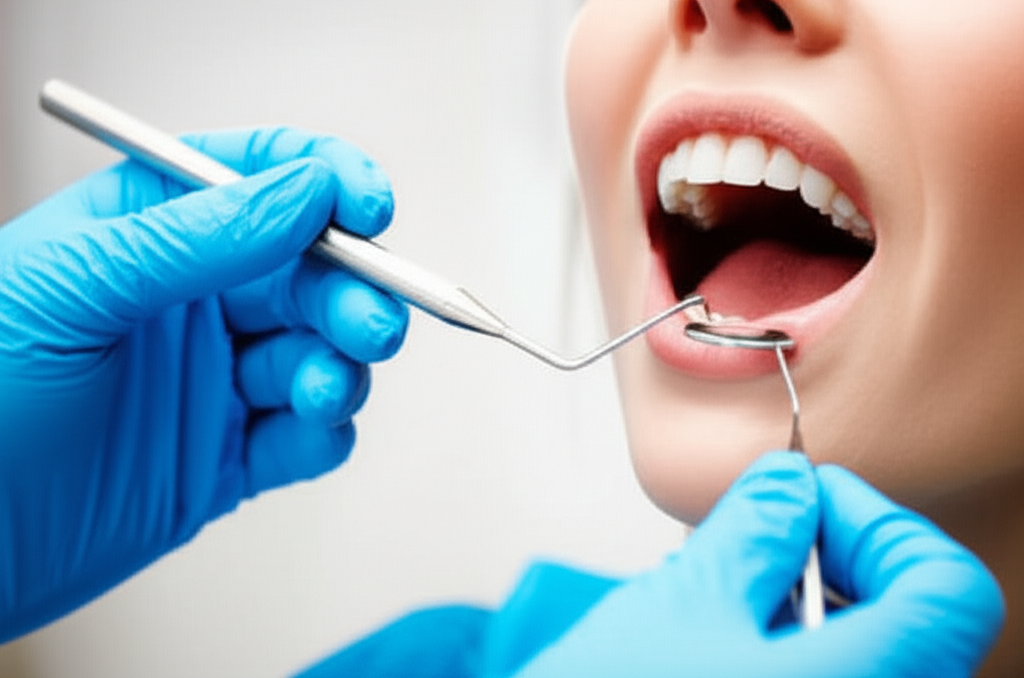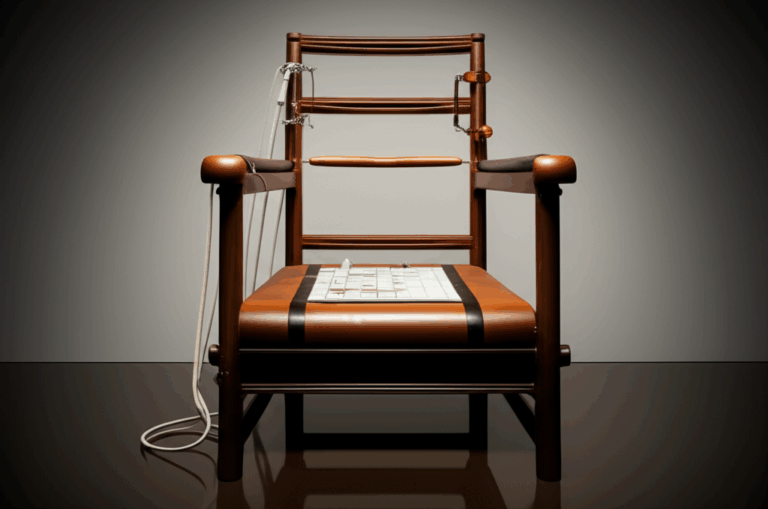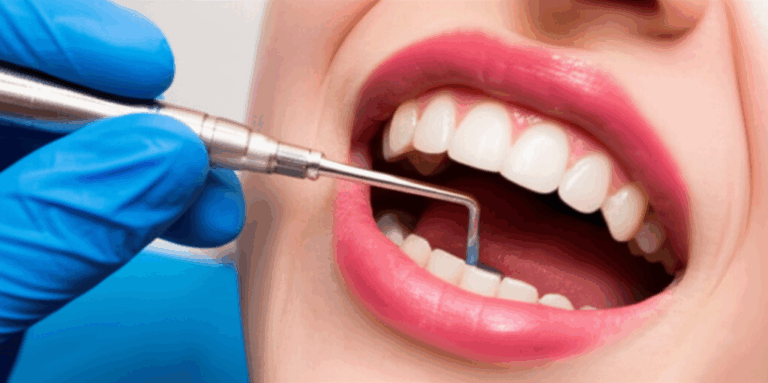
Can a Dentist Help with Dry Mouth? Understanding Their Role in Diagnosis & Treatment
Dry mouth makes your mouth feel sticky, rough, or even sore. Sometimes, it gets so bad that you can’t eat, talk, or sleep well. If you’re facing this, you might be wondering who can help. You’re in the right place! This article shares how dentists play a big part in helping with dry mouth and stopping it from hurting your teeth, gums, and whole life. That’s why you should keep reading. You’ll find answers, easy solutions, and real hope.
Table of Contents
1. Introduction: Understanding Dry Mouth
I remember talking with a person named Lisa who always needed a drink of water, even right after having some. She wondered, “Is this a big deal? Should my dentist know?” Yes! Dentists see dry mouth—also called xerostomia—all the time. If your mouth feels dry or sticky, you’re not alone. Many people, especially as they get older or take certain medicines, deal with this every day.
This article will help you understand:
- Why dry mouth happens
- How dentists can help
- Steps you can take at home
- When you should get professional help
Let’s solve this together. Your comfort matters, and good mouth health starts with a healthy mouth!
2. What Is Dry Mouth (Xerostomia)?
What Is Dry Mouth?
Dry mouth happens when you don’t have enough spit. Spit isn’t just “water”—it keeps your mouth wet, helps break down food, protects your teeth, and lets you taste and swallow easily. Without enough, things get hard.
Signs and Symptoms
Dry mouth might look like:
- A sticky, dry feeling in your mouth
- Always needing to sip water, even at night
- Sore throat or hoarseness
- Trouble talking, tasting, or swallowing
- Bad breath that doesn’t get better
- Cracked lips or a dry tongue
- Mouth sores or lots of infections
Imagine trying to eat a plain cracker with no water. That’s what a lot of people with dry mouth feel like every day. Food can even taste weird.
3. Why Does Dry Mouth Happen?
You might ask, “Why is my mouth always so dry?” There are a few causes, and most can be helped if you spot them soon.
A. Medicines
This is the biggest reason for dry mouth. More than 500 medicines—like allergy pills, cold medicines, mood pills, and blood pressure pills—can cause dry mouth. Even common pain pills can dry your mouth.
B. Health Problems
Some illnesses can cause dry mouth:
- Sjögren’s syndrome
- Diabetes
- Parkinson’s Disease
- HIV/AIDS
- Autoimmune diseases
Anything that harms your saliva glands can kick off dryness.
C. Treatment Side Effects
- Radiation therapy (for head or neck cancer)
- Chemotherapy
Both can hurt the spit-making glands.
D. Daily Habits
How you live matters! Dry mouth can get worse from things like:
- Not drinking enough water (dehydration)
- Mouth breathing, especially at night
- Smoking
- Drinking alcohol or caffeine
- Eating lots of spicy or sour foods
E. Getting Older
Getting older doesn’t directly cause dry mouth, but older people are more likely to take medicines or have health problems that do.
4. How Dentists Find Dry Mouth
Dentists are often the first to see dry mouth, sometimes even before you feel it. A good dentist will:
- Do a close checkup to look for dry or shiny gums, sticky mouth, and too much plaque.
- Look for lots of new cavities, especially along the gums or at the roots. Spit usually protects those spots.
- Ask about your health and medicines you take.
- Do a spit flow test (it’s a funny name, but it helps!). This tells how much spit you really make.
- See other clues like sore spots, mouth fungus (white patches caused by yeast), or problems with dentures.
Dentists sometimes find the real cause by putting these clues together, kind of like a detective!
5. Can Dentists Treat Dry Mouth?
Yes, for sure! Your dentist is your top helper for dry mouth. Here’s what they can do.
A. Giving You a Special Mouth Care Plan
Dentists show you how to brush and floss best with a dry mouth. They might suggest:
- Special toothpastes with lots of fluoride but are gentle (no foam or strong tastes)
- Alcohol-free mouthwashes
- Soft toothbrushes
- Cleaning between teeth with water squirters or little picks
B. Extra Protection for Your Teeth
Without spit, teeth get more holes (cavities). Dentists often give:
- Strong fluoride toothpastes you use at home
- In-office fluoride paints or gels
- Sometimes, custom trays to soak your teeth in fluoride—a “bath” for your smile!
C. Helping You Make More Spit
If your spit glands still work a little, you might get:
- Medicines like Pilocarpine or Cevimeline—they help your glands make more spit (but only if the glands still work)
- Chewing sugar-free gum or candy with Xylitol (a tooth-safe sugar)
D. Making You Feel Better
Doctors might give you fake spit—gels, sprays, or rinses (like Biotene) that keep your mouth wet. These help fast if your mouth feels dry like a desert.
E. Treating Problems
Dentists also fix:
- Cavities
- Gum disease
- Mouth fungus
- Fix dentures that cause pain
F. Sending You to Specialists
If dry mouth comes from something serious—like Sjögren’s syndrome—they can send you to a:
- Doctor for more checks
- Rheumatologist (for immune problems)
- Ear, nose, and throat doctor (for blocked spit glands)
It’s a team job for your health!
6. What Happens If Dry Mouth Is Left Alone?
Let’s be honest. If you just live with it and don’t see a dentist, dry mouth can turn from annoying to really bad.
A. More Cavities, Faster
Spit washes away bad germs and fixes tiny tooth problems. No spit? Cavities grow fast, especially at the roots.
B. Gum Trouble and Infections
Less spit means more plaque, which makes your gums red, puffy, bleed, and more likely to get infections. You could even get mouth fungus—a white, sore yeast infection.
C. Trouble Eating and Talking
Food sticks to your teeth, swallowing is tough, and spicy foods burn. It can get so bad that you stop eating, lose weight, and feel low.
D. Denture Problems
Dentures can rub, causing sores and pain. Some even stop fitting right as your mouth shape changes without spit.
E. Lower Quality of Life
It might sound little, but a dry mouth can make you grumpy, shy, and tired if you miss sleep. You might even stop smiling!
7. Easy Self-Care for Dry Mouth at Home
You can start helping dry mouth today. Here’s how:
- Drink water all day. A sip every 20 minutes helps.
- Chew sugar-free gum or suck on sugar-free candy (look for Xylitol) to boost spit.
- Try a humidifier in your room at night.
- Use over-the-counter moist mouth rinses or gels.
- Skip drinks that dry you out—less coffee, tea, alcohol, and fizzy drinks.
- Stay away from salty, dry, or spicy foods.
- Quit smoking (if you can) and try to not breathe through your mouth, especially at night.
- Be gentle when you brush and floss. Soft is best.
A dental helper or hygienist can give you more easy tips, and you can always ask your dentist for ideas.
8. When Should You Go to the Dentist?
Don’t wait until you have a big dental problem. See your dentist if:
- Dry mouth lasts over a week or keeps coming back
- You see new or lots of cavities
- Gums bleed, swell, or your mouth feels sore
- Trouble eating, talking, or swallowing is getting worse
- You started a new medicine and now feel really dry
- Your dentures don’t fit right or hurt
A dentist knows what to look for and can stop problems early.
9. Real-Life Stories and Research on Dry Mouth
Case Study: Maria’s Experience
Maria, age 62, came in with mouth pain, new cavities, and cracked lips. She had just started a blood pressure pill. Her dentist did a spit flow test and checked her medicines. With a change in her medicine (her doctor’s idea), plus fluoride treatments and a new mouth care routine, Maria’s mouth started to feel less dry in weeks. She needed fewer fillings, and her infections stopped.
Numbers That Matter
| What | Fact | Why It Matters |
|---|---|---|
| How Many Adults Get Dry Mouth | 10%–25% (up to 30–50% if you’re over 65) | Tons of people have it. |
| Main Cause | 500+ medicines cause it | Most people don’t know their pills cause dry mouth. |
| Tooth Decay Risk | 2–4 times higher if you have dry mouth | Seeing a dentist early saves your teeth. |
| Best Hints | Fluoride cuts down cavities by 30–70%. Fake spit helps fast. | The right dentist and dental laboratory tools really help. |
Sources: Checked by Dr. Joe Dental, DDS, and based on studies from the American Dental Association (ADA).
10. Frequently Asked Questions (FAQ)
Can my dentist really help my dry mouth, or do I need a doctor?
Your dentist is the first stop for dry mouth. They can usually spot, help, and keep problems away. For serious health causes, they’ll send you to the right doctor too.
What is the best toothpaste for dry mouth?
Pick gentle, fluoride toothpaste made for dry mouth. They leave out alcohol, strong tastes, and SLS (the foaming stuff that can bug your mouth).
Is dry mouth a sign of something serious?
Sometimes, especially if you also have other problems (like sore joints or dry eyes), it can point to a bigger health thing (like Sjögren’s syndrome or diabetes). Again, your dentist knows what to check.
Are dentures safe for people with dry mouth?
Yes, but take care of them. Sometimes, dentists use a removable denture lab to make dentures that fit dry mouths better.
What if I need special dental work because of dry mouth?
Some people need custom crown and bridge dental laboratory work. Some also choose ceramic dental labs for more comfort and good looks.
11. Key Takeaways
- Dry mouth is common, annoying, and fixable.
- Medicines, health problems, how you live, and age can all cause dry mouth.
- Dentists see dry mouth early and make simple care plans, using tricks from easy tips to advanced dental labs.
- Using good habits, drinking lots of water, and the right products can help a lot.
- Don’t let dry mouth go—solve it early with your dentist’s help.
- Dentist tools like fluoride, mouth rinses, and even special dental gear can help if you need.
- Smile knowing your dentist and the best labs are ready to help!
Checked by Dr. Joe Dental, DDS – Your Smile’s Best Friend








